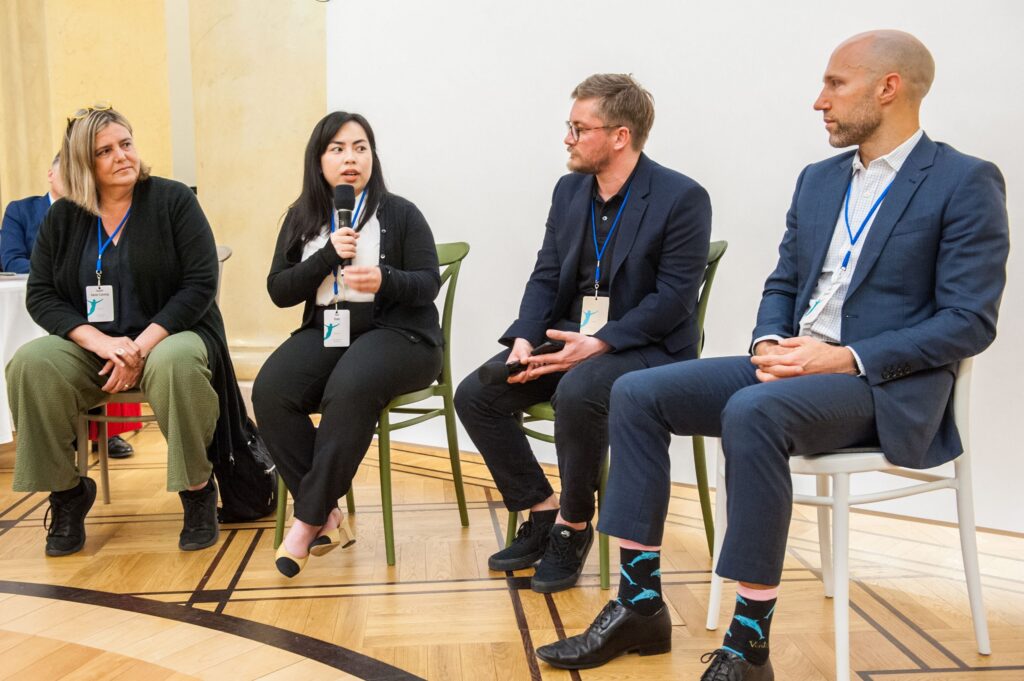(image: Jurek Krupowies)
In the heart of Poland’s bustling capital city, Warsaw, our co-founder Tomáš Rákos moderated an insightful discussion panel as a part of the Innovation in Politics Convention on May 11th. The panel, aptly titled ‘Winning Hearts, Minds and Votes with Online Participation”, brought together prominent voices in the field of participation and Civic Tech. These included Matt Stempeck, the curator of the Civic Tech Field Guide, Isabel Xavier Canning, who leads the renowned Citizenship Department in the City of Cascais, and Van Doan, a Senior Executive at Decision 21 company.
The discourse was ripe with ideas, highlighting the potential, promise, and challenges of online civic participation. To sum up, six key insights emerged from the discussion:
- Recognizing Diversity in Participation: The one-size-fits-all approach isn’t sufficient for online participation. People’s modes of engagement differ, and successful online strategies must take into account these unique needs.
- Making Participation Meaningful: People need to feel that their input matters. We can foster meaningful participation by assuring citizens that their voices have a real impact.
- Encouraging Habitual Participation: To enhance online civic participation, we need to weave opportunities for involvement into every strategy we design, in order to carry on cultivating a culture of habitual engagement.
- Going Beyond Tech: While Civic Tech plays a pivotal role, successful participation relies on more than technology. The importance of robust processes, effective methodologies, and diverse engagement strategies cannot be understated.
- Prioritizing Inclusivity: The US has been at the forefront of user inclusivity in Civic Tech. It’s high time for Europe to follow suit and ensure that our processes are universally accessible.
- Acknowledging Resource Constraints: Open source might seem like an easy solution, but without a dedicated tech team, it may not be the most efficient choice.
Isabel Xavier Canning shed light on the crucial role of trust in fostering participation. She emphasized that building trust is a collective effort, not just the responsibility of a single team within local government. As she put it, “Participation needs to be a strategy for all teams.”
Van Doan from D21 noted the importance of bravery and the willingness to face potential failure. If you want your participatory project to succeed, it is essential to have the courage to put a face to the project.
Matt Stempeck pointed out a widespread pitfall: the disconnect between engagement and actual decision-making. He stressed that even the best digital platform cannot rectify this problem without the right strategies in place.
In a nutshell, online participation is more than technology, more than a singular approach, and more than temporary engagement. It’s about meaningful, consistent involvement, where every voice is valued, and every voice is heard and can make a difference. The discourse at the Palace of Culture has shown us a way forward; it’s now up to us to take these insights and put them into action.
Watch the whole panel discussion here.
Curious about civic tech and how you can implement it in your institution? We are happy to help! Contact us via info@participationfactory.com

